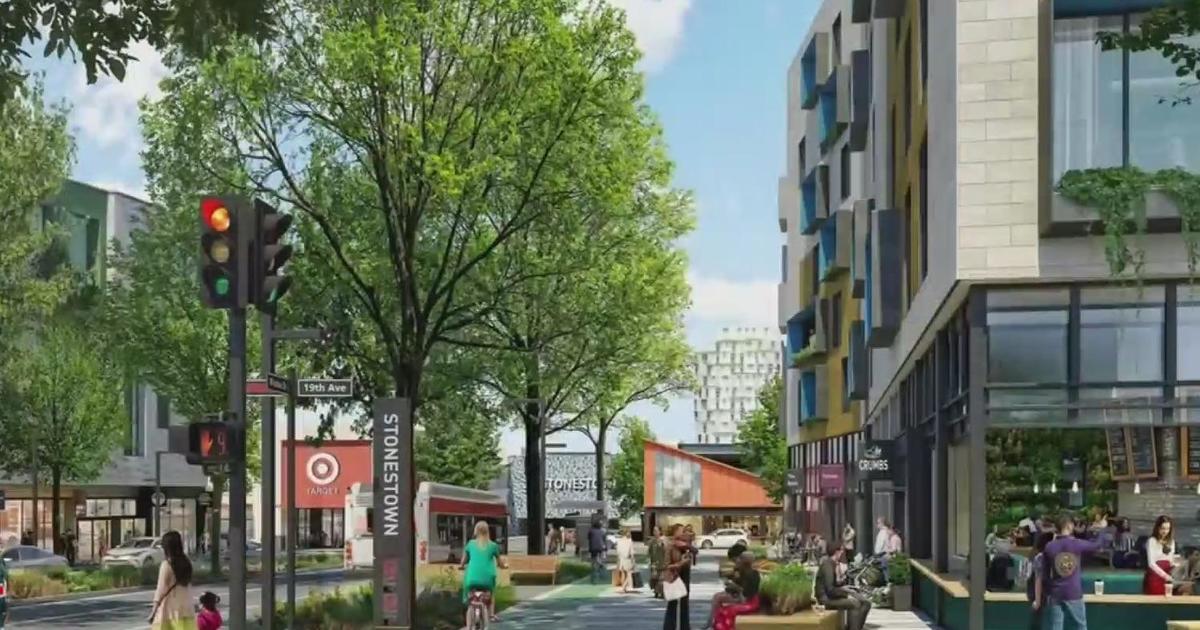Experts Say Article Claiming San Francisco 'Broke America's Heart' Is Misleading
SAN FRANCISCO (CBS SF) -- A much-circulated article in the Washington Post claims tech company money has driven up the cost of living in San Francisco, thus driving out the people and institutions that once made the city great. "[A] city that long welcomed everyone and has been altered by an earthquake of wealth," the article reads.
The writer, Karen Heller, lists her residence as "D.C., PHL. NYC, wherever" on her Twitter page and claims, "In a time of scarce consensus, everyone agrees that something has rotted in San Francisco."
Judging from the comments on social media and elsewhere, many people do lament the state of the city. It's not hard to find heartbreaking stories of former San Franciscans or current residents struggling to hang on, even though it means giving up the dream of ever owning a home. It seems like we don't use the word "housing" anymore without the word "crisis."
Businesses too, are facing a housing crisis. High rents have forced restaurants and other businesses to close, sometimes leaving shuttered storefronts. Add to that landscape more than 8,000 homeless people and streets choked with Lyft and Uber drivers and Heller writes, "You no longer leave your heart in San Francisco. The city breaks it."
And the departing artists and local business owners mean the city is "Too homogeneous. Too expensive. Too tech. Too millennial. Too white. Too elite. Too bro," according to Heller.
But Joe D'Alessandro, President of SF Travel says, "San Francisco is one of the most diverse big cities in the world. We're less than fifty percent Caucasian. We have almost forty percent Asian American population."
Indeed, census data from 2018 shows the city is 40% white, non-Hispanic or Latino, 36% Asian, 15% Hispanic or Latino, and 6% black. Overall, 36% of residents are foreign born.
"The city has embraced such a wide range of cultures and communities, including the LGBT community," says D'Alessandro."It's one of the reasons this place remains a top destination for international travelers."
Rodney Fong, President of the San Francisco Chamber of Commerce, says Heller should look beyond the Financial District to observe the culture.
"I invite her personally to come out to the West Side of the city and have dinner with me," said Fong, hoping he can show her other neighborhoods in San Francisco. He adds that in the city, the hospitality and health care sectors employ more people than tech.
D'Alessandro told KPIX 5 that San Francisco brings in more money from international travel than any other city in the world. And he has not heard complaints about tourists arriving to find a place that's "Too homogenous.Too tech. Too millennial. Too white. Too elite. Too bro."
But "Too expensive"? You bet. It's one of the top complaints coming from tourists and locals alike.
"I worry. I worry it's so expensive to live here and it's getting more expensive," D'Allesandro said. But is it the influx of tech wealth the only culprit? It has contributed to the high demand for homes, but what about the supply?
"People here have resisted building here and how we have a housing shortage," says D'Alessandro.
Fong says the whole Bay Area needs to build. "The need for building more housing is not just in San Francisco but regionally to help satiate some of that demand is needed Bay Area-wide."
Fong also says that San Francisco will find a way to work with the region and the state to deal with this housing crisis. "We work together to find solutions, and we don't throw stones at other cities in the process," Fong said.
In fact, San Franciscans have been working on the issues raised in the article for some time. While Heller writes, "Conservatives have long loathed it as the axis of liberal politics and political correctness, but now progressives are carping, too," progressives are not just "now" "carping" on the city.
Progressives (among others) in San Francisco have sounded the alarm for a decade or more about tax breaks for tech companies, high housing prices and the lack of regulation of the gig economy.
D'Alessandro is hopeful that we can find solutions without losing the city's uniqueness. "The challenges today are somewhat different than the challenges we have faced before but San Francisco has always remained one of those places that people care about, that people find very romantic and people want to visit and people want to live in."



